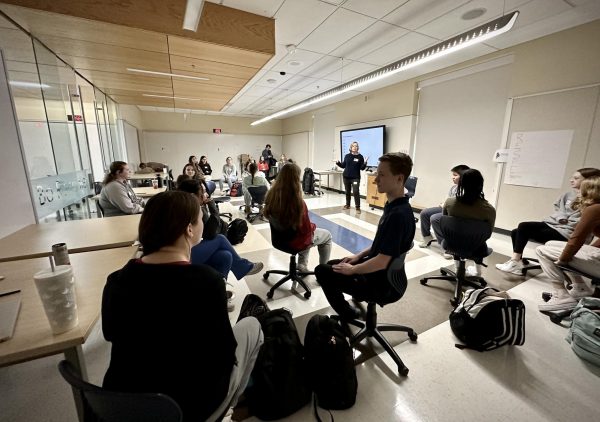Corona-virus Getting Serious – Nationwide Reaction to Covid-19
Corona-virus: do we need to worry and what can we do to prevent it.
March 14, 2020
Coronavirus is creating widespread panic and concern. Some choose to believe that it is being blown out of proportion, but W.H.O. (World Health Organization) recommends you take precaution even though you make believe that it cant impact you, you could carry and spread it to someone who can get severely impacted by Covid-19.
China reported the first cases of coronavirus on December 31, 2019, and within a few days, there were 44 of them. On January 19, 2020, a 35-year-old man was confirmed with Covid-19 in Washington. As of February 28th, according to the World Health Organization, there were 83,694 confirmed cases spread across 53 countries, which have resulted in 2,861 deaths.
Shoppers raid stores in preparation for social distancing.
Panic buying has been rife amid the global spread of the new coronavirus, with consumers around the world stockpiling goods like hand sanitizer, canned foods, and toilet paper. While sales of hand soaps and sanitizers have soared in markets around the world since the outbreak began, consumers have also been stocking up on a somewhat surprising item – toilet paper. According to Dimitrios Tsivrikos, lecturer in consumer and business psychology at University College London, toilet paper has become an “icon” of mass panic.
Do you need to worry about getting affected by Covid-19?

Illness due to COVID-19 infection is generally mild, especially for children and young adults. However, it can cause serious illness: about 1 in every 5 people who catch it need hospital care. It is therefore quite normal for people to worry about how the COVID-19 outbreak will affect them and their loved ones. First and foremost among these actions is regular and thorough hand-washing and good respiratory hygiene. Secondly, keep informed and follow the advice of the local health authorities including any restrictions put in place on travel, movement, and gatherings.
Are there any medicines to prevent Covid-19?

While some western, traditional or home remedies may provide comfort and alleviate symptoms of COVID-19, there is no evidence that current medicine can prevent or cure the disease. WHO does not recommend self-medication with any medicines, including antibiotics, as a prevention or cure for COVID-19. However, there are several ongoing clinical trials that include both western and traditional medicines. WHO will continue to provide updated information as soon as clinical findings are available. The best ways to prevent are by people taking the following measures:
- Clean the hands regularly with an alcohol-based sanitizer, or wash them with soap and water. The CDC also makes this recommendation, advising that sanitizer should contain “at least 60% alcohol” and that people should wash their hands for at least 20 seconds.
- Clean surfaces — such as kitchen sets and work desks — regularly with disinfectant.
- Avoid crowded areas, especially for people with any underlying health problems.
- Try to avoid close contact with people who display flu-like symptoms, coughing and sneezing
Get accurate information about COVID-19. Some good sources include the Pan American Health Organization, WHO websites and the American Red Cross.
















